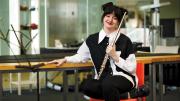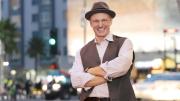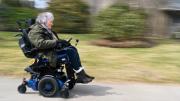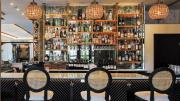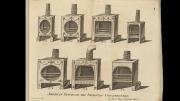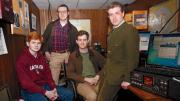One hundred years ago, Henry Lee Higginson, class of 1855, founder of the Boston Symphony Orchestra and donor of Soldiers Field and other gifts to Harvard, became the first president of the Harvard Club of Boston. He and other early club leaders set the tone of solid relations with the University, philanthropic-minded ventures, and the promotion of “social intercourse” among Harvard men and, in time, women (at first admitted only to an “annex,” in 1940) that remain hallmarks of the club today.

Photograph by Dom Miguel Photography
The club rolls out the crimson carpet
About 400 alumni and guests gathered on March 12 to celebrate the club’s centennial with a lavish dinner and listen to remarks by President Drew Faust. When the club founders agreed to “‘disseminate the standards of education and right living of Harvard University,’” she told the crowd, they did so at a time when their annual expenses were just over $1,700—“which would not even pay for our parking bills tonight.” But in essence, they “were part of a world of aspirations and initiatives really no different from our own.” Among the early recipients of a Harvard Club scholarship for Boston boys, she noted, was James B. Conant, “the Harvard president perhaps best known for opening the University to what he called ‘gifted youth of limited means.’” Continuing in that tradition, the club last spring awarded 36 scholarships worth $4,500 each to incoming freshmen of the class of 2011. The club also recognizes nearly 300 high-school students each year for academic excellence, sponsors 13 summer interns at nonprofit agencies in Greater Boston, and this year plans to launch and fund a Harvard Club of Boston community-service fellowship under the auspices of the Phillips Brooks House Association, says Philip C. Haughey ’57, president of the club’s board of governors (and a member of this magazine’s Board of Incorporators).
The club works actively to retain its 5,272 members and recruit more, especially younger ones. “It is not an easy time for clubs in general, because people have moved to the ’burbs, families are buried in regulated activities with their kids, and it’s a challenge to know how best to appeal to young members and their families,” Haughey says. The main club on Commonwealth Avenue (built in 1913) offers fitness centers, squash courts, dining, and something to see or do almost every night of the week: from concerts, films, and lectures to sports-oriented events, holiday dinners, and the annual children’s Christmas party and father-daughter tea dance. The downtown affiliate on Federal Street also offers dining and events.

Photograph by Dom Miguel Photography
A delectable Veritas dessert
A mix of members came to celebrate the centennial. Friends Bruno Marino, Ph.D. ’91, and Lewis Lutin, A.L.M. ’88, were chatting in the oak-paneled bar. “This place is my home away from home,” reported Marino, a scientific entrepreneur who lives in Maine and spends at least one night a week at the club for business reasons. “It’s a great place to meet all kinds of people for all kinds of reasons.” Lutin, of Falmouth, Massachusetts, added, “I’ve been coming here every week for 20 years. This place is about friendship.” Boston attorney Maura Pelham ’00 said she found the majestic rooms, glittering chandeliers, and Old World ambience so beautiful, she joined the club last year mostly so she and her fiancé could hold their wedding reception there. “None of my friends are members,” she noted, “but I am going to make an effort to get them here.” Norton Reamer, M.B.A. ’60, a former Radcliffe College trustee who finds the downtown club more convenient for lunch and business meetings, had come to the main clubhouse primarily to hear Faust in her new role.

Photograph by Dom Miguel Photography
President Drew Faust addressing a sold-out crowd at the Harvard Club of Boston's centennial celebration
The president spoke of making Harvard more affordable, of addressing changes in undergraduate teaching and advising, and of developing the new Allston campus. She discussed the new task force she has charged with defining the role of the arts at a research university and in a liberal-arts education, and laid out the increasingly international nature of the University on the eve of departing for the Harvard Alumni Association’s global series event in China (see “Connecting with China”).
In closing, she talked about Harvard president Charles William Eliot, the guest speaker at the first annual Harvard Club of Boston dinner, in 1909, not long before he stepped down after 40 years in office. “‘The University has before it an opportunity to make sure of continuous growth and continuous improvement,’” Faust quoted from his speech. “I hope we have accepted his challenge,” she declared. “I hope we continue to carry it forward. And I acknowledge the partnership with the Harvard Club of Boston that has made possible the advancement of the University and the continuing of the University.… I will look forward to spending more birthdays with you.”
